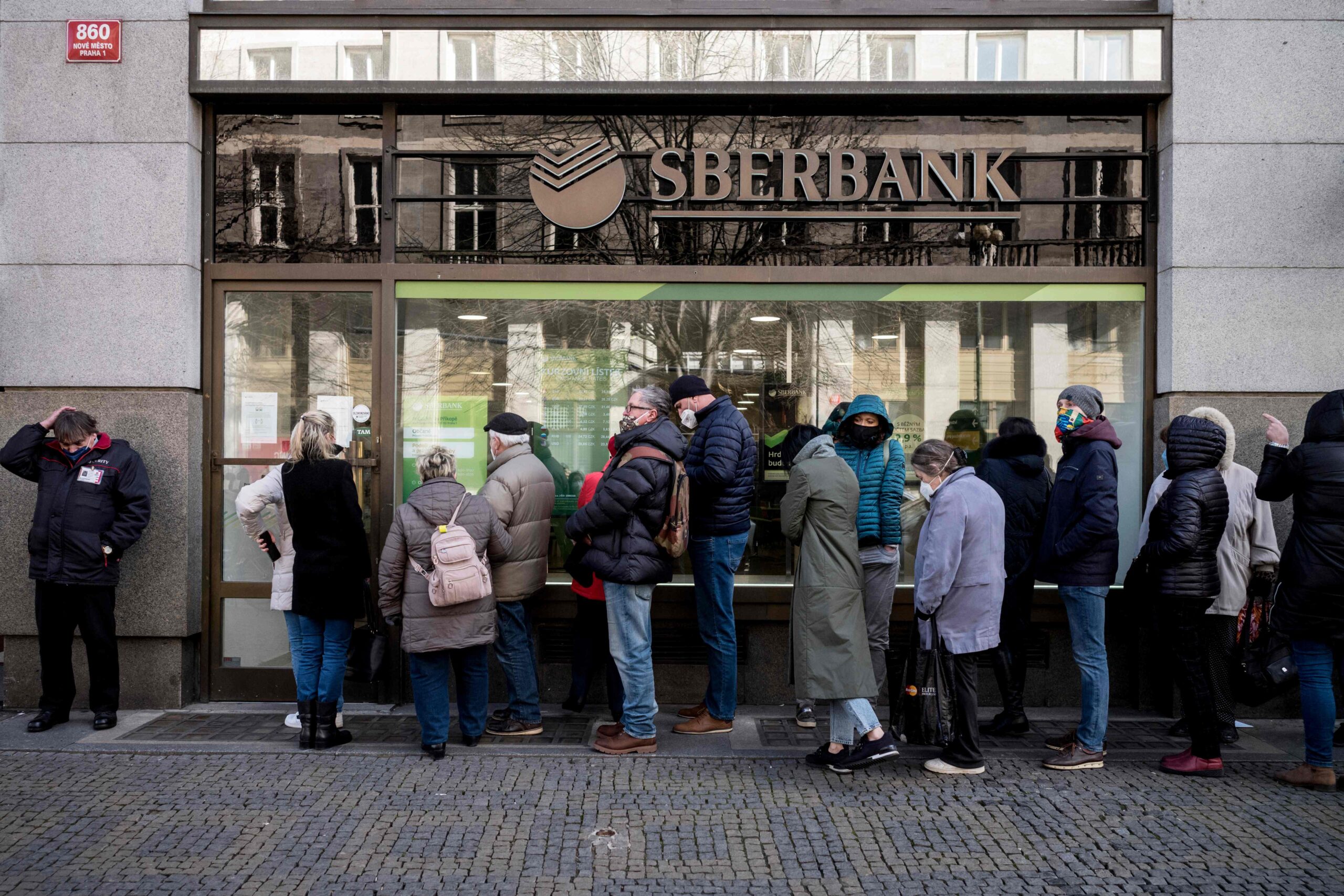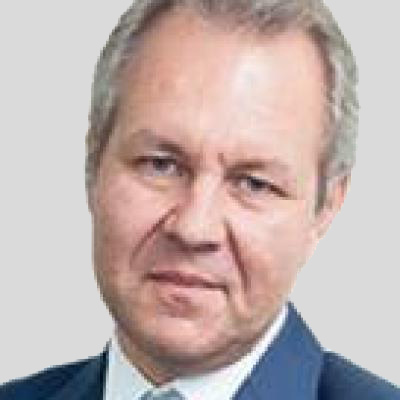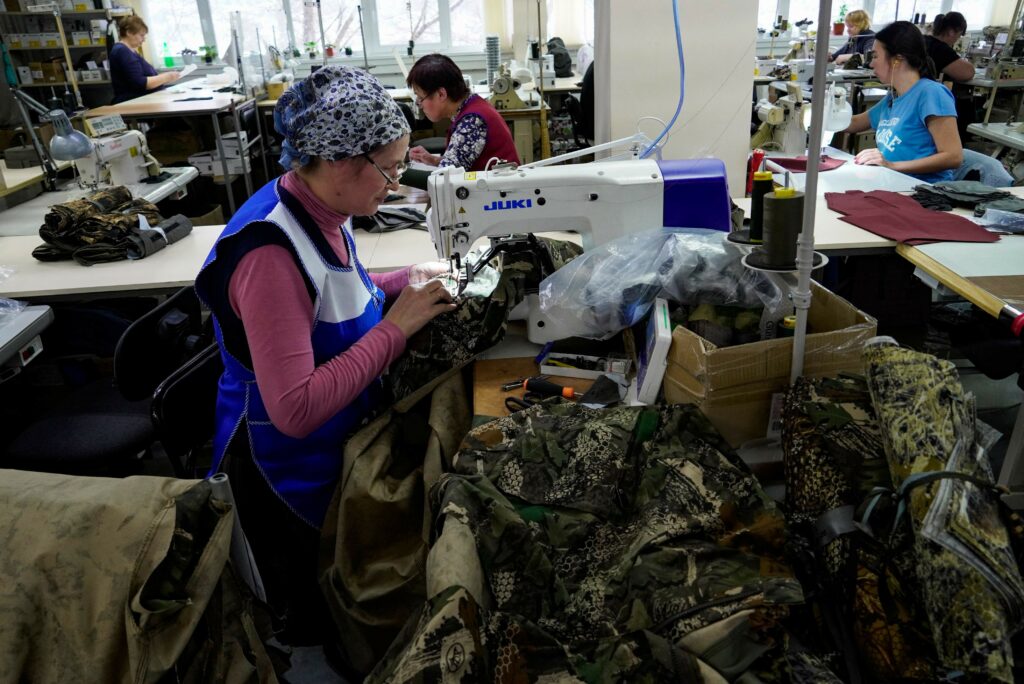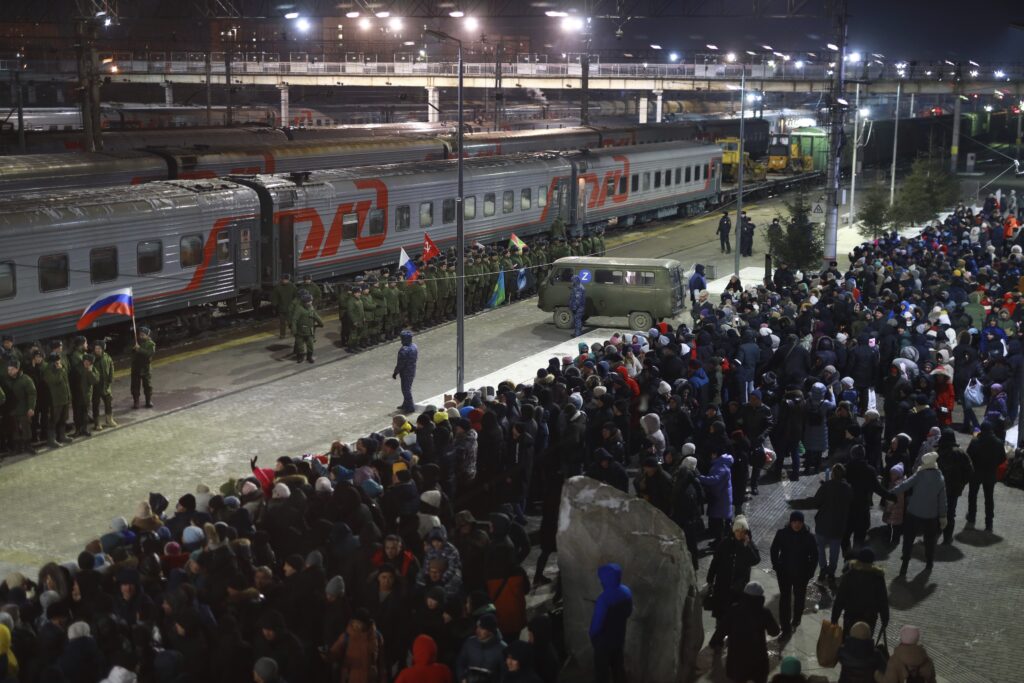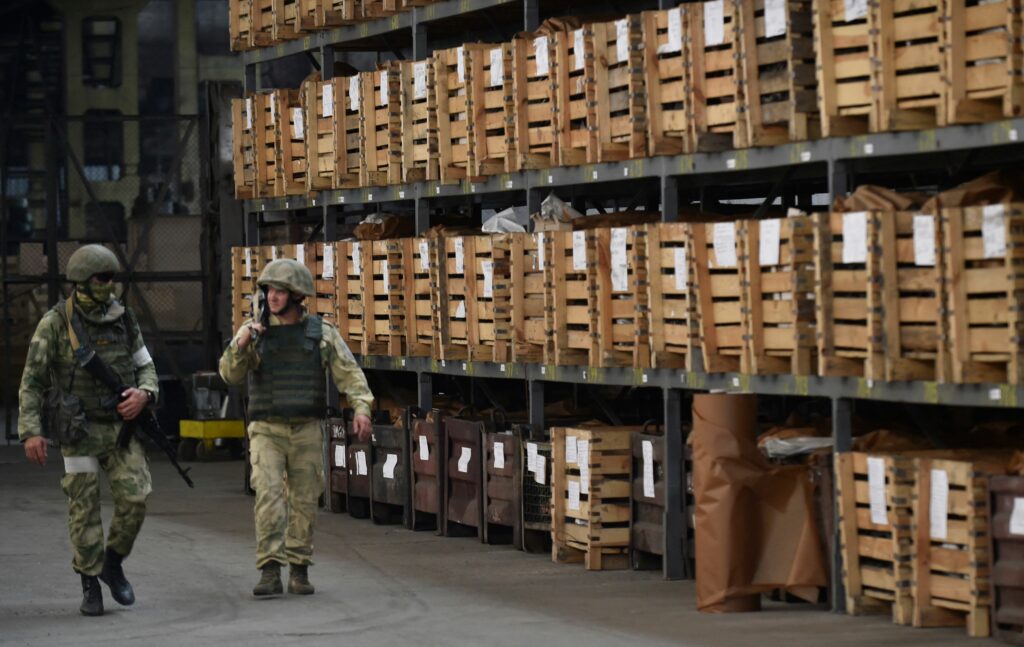Vladimir Putin’s invasion of Ukraine brings immediate and existential questions about the Russian economy. How will it survive and function during a military operation? How will it withstand sanctions from Western countries, and the general confusion of investors and consumers? My view is that there are no grounds for panic in Russia’s finance ministry yet: the economic consequences of the war in the near future will remain much less significant for Russia than the foreign policy ones.
I base my assessment on how even before the aggression of 2014, an economic system has been unfolding in Russia that is ever more independent of external factors. The economy during this time became more primitive; the value of imports decreased, while seriously reorienting to China; demand is much less elastic. External sources of funding were largely replaced by internal ones; the stock market remained a speculative instrument rather than anything attaining to long term value retention (at the time stock prices reached the lowest levels on February 24, total losses of investors reached $ 500 billion, or 30% of GDP, but this did not provoke any serious negative consequences in the real sector). The influence of the exchange rate on the level of inflation has noticeably decreased. The Bank of Russia now has all the necessary support tools for the market (starting from the ability to allow financial institutions not to reflect losses from the revaluation of securities on the balance sheet to interventions in the foreign exchange market and provision of ruble and currency liquidity to banks).
The results of this transformation were already manifested during the «covid crisis» and the resulting oil market slump in 2020–2021. Russia’s GDP grew by 2.0% with the virtual absence of government support for the economy, which is comparable to the dynamics in the United States (+2.2%) and far exceeds the figures for the eurozone (-1.7%), where injections into the economy amounted to 20% of GDP. Therefore, the consequences of the Russian invasion must be considered in this context: the recent frenzied jumps in stock prices and panic in the foreign exchange market are not a serious factor affecting the dynamics of the real sector in the near future (especially since by the end of the week the situation had relatively stabilized).
As we’ve recently noted, in the macroeconomic context, the Russian economy looks satisfactory: the profits of the corporate and banking sectors last year reached record levels; the positive balance of foreign trade grew over the year by almost 90%, and the balance of payments — by 3.3 times; the budget instead of the planned 2.7 trillion deficit was reduced to a primary surplus of 2.5 trillion rubles. The state debt does not exceed 20% of GDP, and more than ¾ is covered by reserve funds. Anemic consumer demand remained a problem; but it was supposed to be partly offset by large government investments. Foreign political adventures had a serious negative impact on the stock and currency markets, but had practically no effect on the real sector, and growth was bound to recover after the normalization of the situation.
So although war in Ukraine has mixed the cards, it is unlikely to radically change the overall picture in the short term. In the medium term, economic sanctions by Western countries affects several of the largest Russian banks (including VTB, Sberbank, Alfa and Gazprombank) Their clients’ settlements in foreign currency will now be difficult or impossible. This is a serious blow — in total, Russian financial institutions carry out transactions in foreign currencies for almost $ 50 billion daily. A significant part of them will have to now be abandoned. Bank clients will not be able to use dollar settlements on their plastic cards; accordingly, a blow will be dealt to cross-border Internet commerce and payment for services (for example, air tickets). This, however, will most likely cause no more than an outflow of importers from large state-owned banks to medium-sized private ones — while the companies can continue to use the loans of the giants, but conduct international settlements through banks that are not included in the sanctions lists. Sanctions have also been imposed on large state-owned companies in the energy sector, for which foreign borrowing is prohibited. Again however, we should not overestimate the threats that have arisen, since depreciated debt securities can be redeemed by the borrowers themselves with funds raised inside the country.
The ban on operations with domestic debt has already led to the postponement of new OFZ issues (in this market, the share of foreigners, although far from the highs of 34−35%, was about 23% in early February). But the Ministry of Finance with the current budget revenues do not need new borrowings. Most likely, bans on the import of many types of electronics, as well as aviation equipment and cars, will soon come into force and some companies will refuse to work with Russia on their own. I assume there will be also closed dozens of Western enterprises now operating in the country.
A serious blow is being dealt to international air travel: there are already reports of restrictions on Aeroflot flights to the UK. It will probably affect other areas as well, like thdprohibition of deliveries of new aircrafts. There will even be the closure of the air space for the flights of Russian airlines (the rejection of the passage of foreign aircraft through Russia is not excluded). At the same time, the main «link» between Russia and the world — the supply of hydrocarbon raw materials — did not suffer. On top of that, at least for now the country remained connected to the SWIFT system, though that could still change. No restrictions were applied to the majority of Russian citizens abroad (with the exception of the ban on placing on deposit accounts an amount greater than £50,000 in Britain or € 100,000 in EU countries).
In other words, the issue of sanctions today is approximately the same as before tanks started rolling. Western governments seek to strike at large Russian near-state businesses, but are not going to prohibit their own companies from conduct transactions with Russia. They generally will refrain from taking measures that could lead to a complete cessation of the presence of foreign business in the country (do not forget that at the end of 2021, Russian trade with countries outside the former USSR and China amounted to $ 556 billion, and Western investments in Russia exceed $ 500 billion). All this assumes that in the near future compromise ways of carrying out transactions and settlements will be found.
Bottomline, we have a hiatus for the foreseeable in the Russian stock market (political risks are so great that serious investors are unlikely to remain on it). Putin’s favorite «de-dollarization», could he further carried out by the efforts of the West, while there will also be significant limitation of imports of high-tech goods to Russia. The main consequence will be a decrease in investment, a reduction in the pace of the credit boom, a drop in demand and prices for real estate and other investment goods — and, as a result, a reduction in growth rates by 0.5−1.5% per year.
In addition, according to the results of the acute phase of the crisis, the ruble exchange rate will decrease by 15−20% versus the end of last year (and by 20−25% for the purposes of import calculations), which will increase inflation by 2−2.5% in annual terms. The desire to get out of ruble assets will keep the need for a further increase in the key rate of the Bank of Russia, which by the end of the year I would see at the level of 12−12.5% per annum. Inflation, rate hikes and entrepreneurs’ uncertainty — all these factors will lead to a decrease in growth rates by the end of the current year to zero, and a drop in real incomes will be 2−4%. This will be the immediate cost of the conflict, but in the future, the isolation of the Russian economy from the world economy will create additional difficulties.
However, here we enter the area of uncertainty and further forecasts seem to be a thankless task. Several factors will be critical. Firstly, this is the duration of the war, its scale, the losses of the parties and the legal consequences. As the horrors of the bombing and occupation grow, so will the likelihood that Moscow will have to bear responsibility for this (already now, as something decided, Ukraine’s appeal to international courts is being talked about, and following their results, large-scale arrests of accounts and assets of Russian organizations abroad are possible).
Secondly, this is Russia’s response to international sanctions (so far they only mirror some of the Western ones): we know very well that the only citizens of Russia who really feel the consequences of sanctions war are the results of food counter-sanctions, and not the restrictions imposed by Western countries. Thirdly, it is important to understand how serious further sanctions steps can be and what other states can join with it (in particular, to what extent US sanctions will be observed by China). Finally, it is impossible to calculate what the general trajectory of the recovery of the global economy will be in the coming years and what new trends may arise in the financial and commodity markets in connection with this.
The Russian economy will well survive the trials associated with the war in Ukraine. No default, no freezing of deposits or their forced conversion, no distribution of goods on cards is necessary. At the same time, all financial investments will turn out to be much riskier, and the prices of Russian assets will be significantly adjusted. The domestic market will become even more isolated from the world market: some Western brands will disappear from it, international air carriers will leave, the range of electronics offered will be reduced, and, most importantly, payments for foreign trips and transactions on the Internet will become more complicated. High interest rates will seriously reduce the activity of buyers in the real estate market and when buying cars and other durable goods; inflation in 2022−2024 will significantly exceed 10% per annum, the economy will stop growing, real incomes will decrease, and even if they remain at the same level, it will only be due to an increase in the share of benefits and one-time payments in the overall income structure.
Since the beginning of the 2010s, Russia has ceased to be, to some extent, a «catching up» country and has moved into the category of lagging behind. The war in Ukraine will not only consolidate this status but will also significantly accelerate such a lag in conditions when the world is de facto getting used to a new financial reality, experiencing a technological revolution and preparing for an energy transition. President Putin, reviving the images and practices of the 19th century in foreign policy leaves the Russian economy in the 20th century, although the world is already looking almost into the 22nd…
